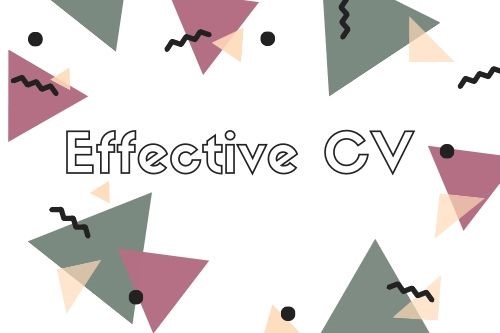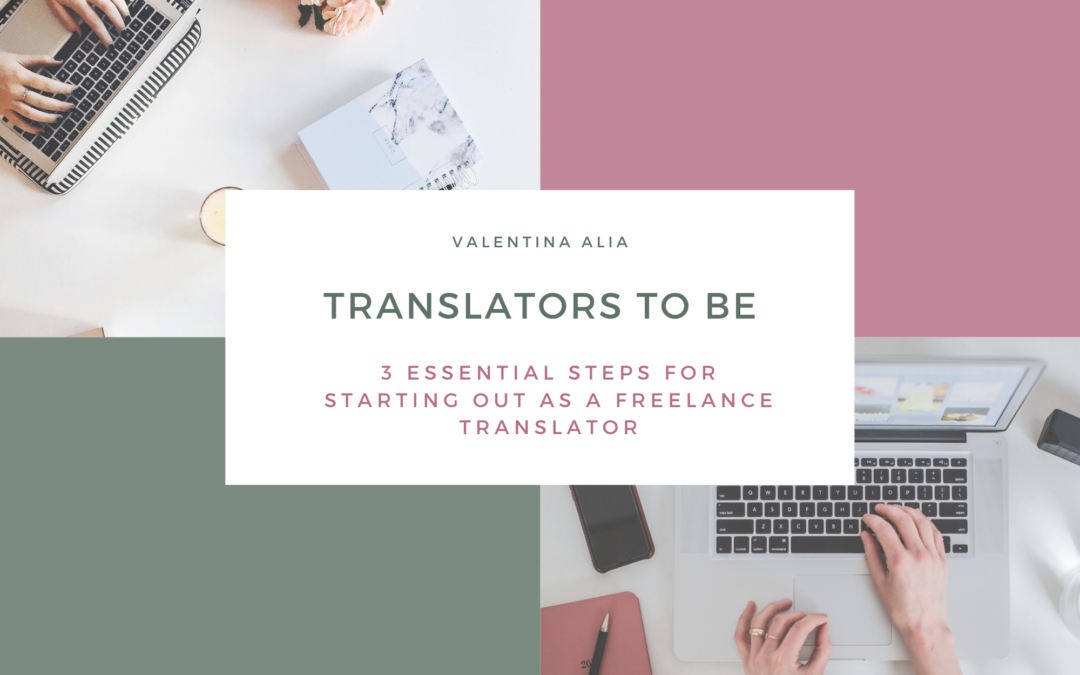Becoming a freelance translator is not as easy as it might seem from the outside.
Starting out is pretty hard, and making a living out of it can be even harder. If you want to be a freelancer, you have to gain the trust of your clients from behind a laptop screen without being able to speak to them in person.
So how did I, and my colleagues, get to where we are today? There’s no one answer or magic potion, I am afraid, but I can tell you what worked for me and hopefully, you will find it helpful.
Don’t forget to be patient and never give up: it’s not an easy path, but it’s worth it!

1. Gain experience
I hear you say: “Yes, but how?”.
Well, there are different ways you can start to get work and gain some experience to add to your CV. Because let’s face it, nobody wants to hire you if you don’t have experience, but how can you gain experience when nobody wants to hire you?
The first thing you can do is to start translating as a volunteer, there are different associations online that recruit translators for interesting projects: I started with GlobalVoices.org, which is an international online magazine that translates all kinds of news in a vast number of languages.
If you are serious about it, my advice is to find an internship in a translation agency. This way, you can see first-hand how the job works.

2. Specialise
At the beginning of their career, most translators start looking for jobs in every field, often the more generic ones.
This could be the way to go, but sooner or later (and the sooner, the better) you will need to find your specialisation.
But how can you find the right one for you?
A few months ago, I wrote a post on LinkedIn about how I found mine. The two options I suggest are:
Do it the long way and start working as a general translator, this way you can get an idea of what you like translating and what you don’t.
The short way is to choose your specialisation at the beginning, considering your hobbies and the things you like and to see if you can turn them into specialisations: I did this with travel and tourism, for example.

3. Write an effective CV
I see you there with your impersonal CV, listing all your previous work experience (even that babysitting job when you were 16) as well as your school exam results. I’m sorry to say that this is not what I mean by “effective”.
A freelance translator’s CV is different from one aimed at finding an employee role. First, you need to add your working language pair, so the recruiter will know straight away how you can help.
Then, it’s time for your fields of expertise: if you don’t have a specialisation yet, write the fields you want to specialise in and start studying them by yourself so you won’t be unprepared when a job comes up.
You can now proceed like a regular CV with your work experience (if you don’t have any, you can list your internships) and your education background, without being too specific and without going as far back as primary school.
Remember that the perfect CV is one, max. two pages long, and it has to strike the reader’s attention.
I know, starting out as a freelance translator is not easy and you will likely feel overwhelmed and frustrated at some point.
Just give it time and I promise that you will get there.
I sent lots and lots of CVs around when I started and it took almost a year for the first agency to get back to me and send me my first project: so hang in there!
I’d love to hear all your thoughts about this and to know if you found it useful.
Leave a comment to let me know

